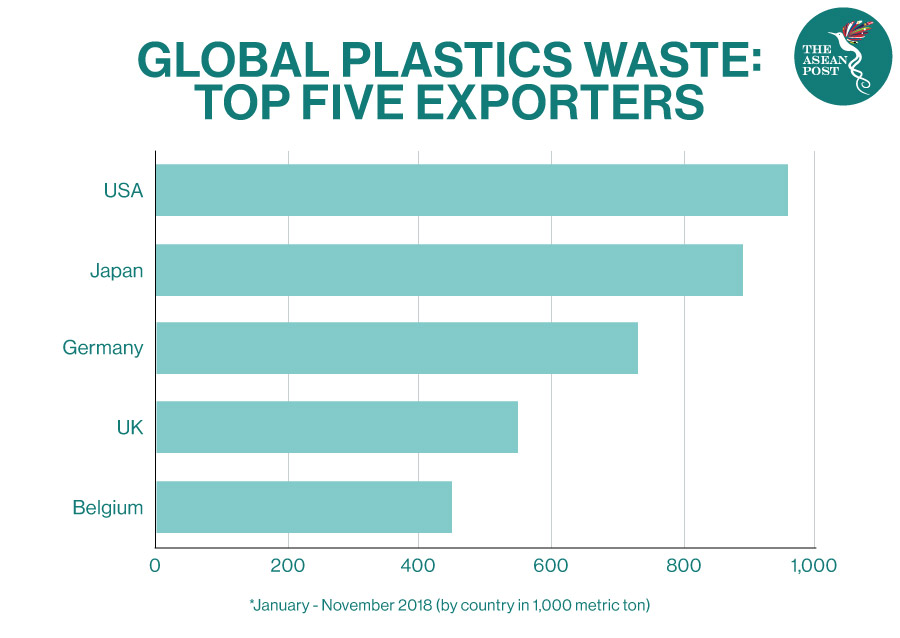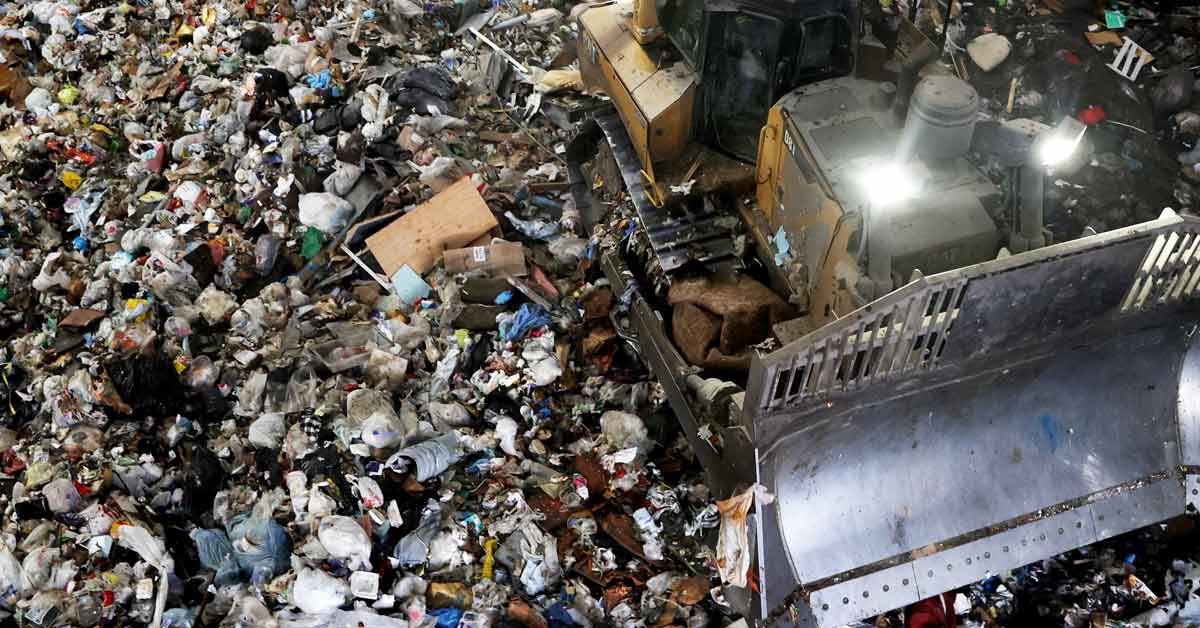Plastic consumption has exploded over the years. This has caused plastic waste production worldwide to steadily increased by 10 million metric tons every year in the last 10 years, to reach almost 360 million metric tons in 2018.
The plastic crisis is one of the greatest challenges facing planet earth. According to the Center For International Environment Law (CIEL), up to 12 million tonnes of plastics leak into the oceans annually, severely harming biodiversity and killing marine species.
More than 95 percent of global annual plastic waste and microplastics stay on land – which create an expensive waste management burden and social and economic crises for local communities.
The overwhelming amount of plastic waste has now opened doors to criminal networks.
France-based intergovernmental crime-fighting agency Interpol stated that global plastic waste management has found an alarming increase in the illegal plastic pollution trade across the world since 2018.
A 2020 published report titled, “Interpol’s strategical analysis on emerging criminal trends in the global plastic waste market since January 2018” revealed that there has been a significant increase over the past two years in illegal waste shipments, mainly rerouted to Southeast Asia via multiple transit countries to camouflage the origin of the waste shipment.
Other findings include an increase in illegal waste fires and landfills in Europe and Asia, a rise in the use of counterfeit documents and fraudulent waste registrations.
Waste Exports
Some countries, especially high-income ones have imposed regulations encouraging the recycling of plastic waste. They have made large investments in recycling and have mature waste treatment infrastructure that allows for collecting and sorting out plastic waste.
However, it has also spurred corrupt operators to cash in on an industry that is difficult to police.
“Waste crime is a rising threat with roots in a more fundamental problem: the inability to manage our plastic use and production. We are witnessing the impacts of plastic pollution on marine ecosystems and now, the criminal implications of it. Systemic change and greater accountability are the only way to tackle a crisis that transcends national borders,” said Eirik Lindebjerg, Global Plastics Policy Manager of the World Wide Fund for Nature (WWF).
From 1992 to 2018, China imported a cumulative 45 percent of the world’s plastic waste. During that period of time, the global plastic waste market was dependent on access to the Chinese recycling sector. However, following China’s move to restrict plastic waste imports in 2018, the re-routing of shipments has overwhelmed alternative countries, opening the doors for opportunistic crime, as noted by the WWF.
Europe and North America are believed to divert most of their plastic waste exports to Cambodia, India, Indonesia, Malaysia, Pakistan, Vietnam and Thailand. Whereas Australia and New Zealand have increased their waste exports to other Asian countries such as Malaysia, while Japan has increased its waste exports to Thailand.
Developing countries, especially those with limited waste management and enforcement capacities are increasingly targeted.

As regulations on waste imports are continuously changing and are not standardised across destination countries; exporters and enforcers face challenges in ensuring that plastic waste exports comply with import regulations, noted Interpol.
As a result, paired with the lack of traceability of plastic waste – individuals or crime groups could take advantage of loopholes, information gaps, and new trade routes in the plastic waste market that are not entirely monitored.
Recommendations
Following Interpol’s report about increased illegal shipments and criminal activities across global plastic waste trade routes, the WWF has issued a call for global cooperation to address the issue.
Some of the recommendations suggested by the WWF in an international response by governments include; accelerating negotiations for a global legally binding agreement with clear national plans and regulations, reinforcing existing mechanisms such as phasing out single use plastics and addressing gaps in waste management in economies, innovating and scaling up environmentally sound alternatives to plastic, and lastly – investing in research and capacity building for enhanced monitoring and enforcement of plastic waste.
Related Articles:
Plastic Pollution: We Need To Act Now
